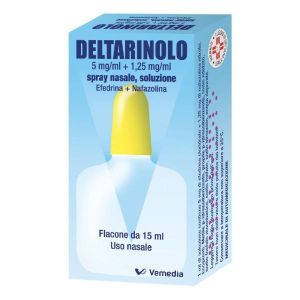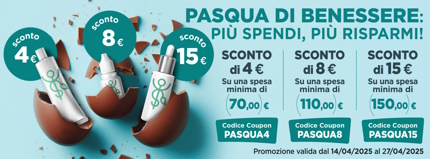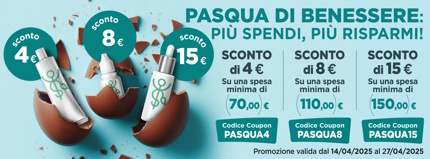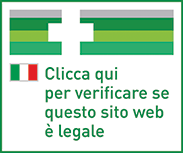Ship in Europe, Find out rates!
Deltarinol Decongestant Nasal Spray 5mg/ml + 1.25mg/ml 15ml

- box Delivery in Italy in 24/48 and free returns
- star3.000+ positive reviews
- dropboxOver 60,000 products in the catalog
QUALITATIVE AND QUANTITATIVE COMPOSITION
Excipients: Methyl p-hydroxybenzoate, propyl p-hydroxybenzoate, sodium edetate, monobasic sodium phosphate, sodium phosphate, sodium hydroxide, purified water.
PHARMACEUTICAL FORM
Nasal spray, solution.
Therapeutic indications
Decongestant of the nasal mucosa.
Contraindications
Hypersensitivity to the active substances or to any of the excipients
heart disease and severe arterial hypertension, acute narrow-angle glaucoma, hyperthyroidism, prostatic hypertrophy, pheochromocytoma, diabetes mellitus, pregnant or presumed pregnant or lactating women.
The drug is contraindicated in children under 12 years of age.
Do not administer during or in the two weeks following therapy with antidepressant drugs.
Special warnings and precautions for use
Prolonged use of vasoconstrictors can alter the normal function of the mucous membrane of the nose and paranasal sinuses, also inducing addiction to the drug. Repeating applications for long periods can be harmful. Use with caution in patients with renal insufficiency and, due to the danger of urinary retention, in the elderly.
The use, especially if prolonged, of topical products can give rise to sensitization phenomena; in this case it is necessary to interrupt the treatment and, if necessary, institute a suitable therapy. However, in the absence of a complete therapeutic response, within a few days, consult your doctor; in any case, the treatment must not be continued for more than four days.
In patients with cardiovascular diseases, especially in hypertensive patients, the use of nasal decongestants must in any case be subjected to the judgment of the doctor from time to time.
Cardiovascular effects can be observed with the use of sympathetic mimetic drugs, such as DELTARINOL. There is some evidence from post-marketing data and published literature of rare cases of myocardial ischaemia in association with the use of beta agonists.
Patients with pre-existing severe heart disease (e.g. ischemic heart disease, arrhythmia or severe heart failure) taking deltarin should be advised to seek medical attention if they experience chest pain or other symptoms of worsening heart disease.
Attention should be paid to evaluating symptoms such as dyspnoea and chest pain, as they can be of either respiratory or cardiac origin.
Follow the recommended doses scrupulously. The product, if accidentally ingested or if used for a long time in excessive doses, can cause toxic phenomena. It should be kept out of the reach of children as accidental ingestion can cause marked sedation.
It must not be used orally.
Avoid contact of liquid with eyes.
Attention for those who carry out sporting activities: the product contains substances prohibited for doping. It is forbidden to take a different dose, for dosage schedule and route of administration, from those reported.
Due to the presence of methyl-p-hydroxybenzoate and propyl-p-hydroxybenzoate as excipients, allergic reactions are possible, even of the delayed type.
Ephedrine can be a substance prone to abuse.
Interactions
The active ingredients contained in DELTARINOL can negatively interact with antidepressant drugs. Consequently, the administration of the product during or in the two weeks following antidepressant drug therapy is contraindicated.
Ephedrine can reduce the pharmacological efficacy of antihypertensive drugs; associated with clonidine, it can cause an increase in noradrenaline levels and a rise in blood pressure. If associated with NSAIDs, it can favor the onset of lesions of the gastric mucosa. Ephedrine can increase the metabolism of corticosteroids, reducing their plasma levels. Asthmatic patients being treated with such drugs should therefore avoid taking ephedra products.
Urinary excretion of ephedrine is pH dependent; acetazolamide, antacids, ammonium chloride and sodium bicarbonate are able to alkalize the urine, and consequently slow down the elimination of ephedrine.
The concomitant combination of ephedrine with digoxin, phenylpropanolamine, cyclopropane and pseudoephedrine is associated with an increased risk of adverse cardiovascular events. Reserpine, by causing norepinephrine depletion, may reduce the efficacy of ephedrine. Theophylline may cause a higher incidence of central and gastrointestinal adverse effects, which occur following administration of ephedrine. The combination of ephedrine and caffeine can potentiate the sympathomimetic effects of ephedrine.
Pregnancy and breastfeeding
The use of the product in women who are pregnant or presumed pregnant or breastfeeding is contraindicated.
Effects on ability to drive and use machines
DELTARINOL does not affect the ability to drive or use machines.
Overdose
In case of overdose, or accidental ingestion, arterial hypertension, tachycardia, photophobia, intense headache, chest tightness, psychiatric reactions and, in children, hypothermia and severe depression of the central nervous system with marked sedation may appear, which require the adoption of adequate emergency measures.
How to use : DELTARINOL should be applied every 3-4 hours up to 4 times a day; only one spray is sufficient. Strictly adhere to the recommended doses. A higher dosage of the product even if taken topically and for a short period of time can give rise to serious systemic effects.


